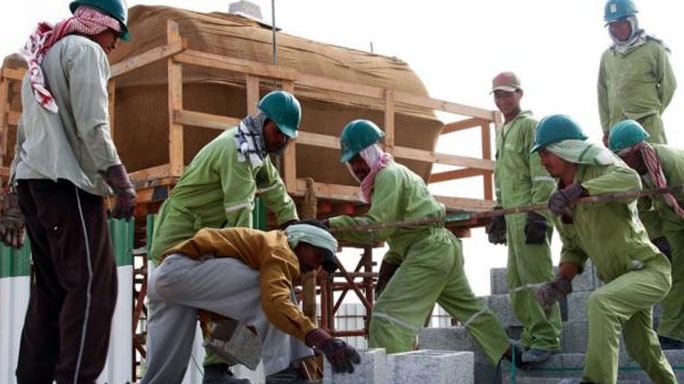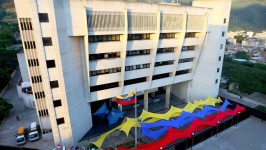The Sailiya Labor Camp houses tens of thousands of workers, mostly from India, Pakistan, Sri Lanka and Nepal. Driving in a beat-up old sedan so as not to attract police attention, the driver turns onto a paved street that quickly becomes a dirt road with massive potholes.
Four Sri Lankans emerge from a tumble-down wooden shack where they live. One worker, who declines to give his name fearing retaliation from his employer, says he earns the equivalent of 290 euros ($330) per month. And the working conditions are tough.
He and his friends work painting steel beams on construction sites in temperatures of 45 degrees Celsius. "When we're working at the sites, it's really hard," he said. During the height of the summer employers allow a long break during the hottest part of the day, but the summer regulations hadn't begun yet.
Shanty towns for the foreign workforce
Living conditions are very hard as well. The labor camp is owned by the employers and has grown up haphazardly as a shanty town over the years. The employers take no responsibility for providing the kinds of utilities most residents would expect.
Some tanker trucks bring water while others suck out the waste from latrines. Small generators are the only source of electricity.
A huge fire broke out in one section of the camp the day before my visit. Workers' housing and belongings burned up. "Everything was destroyed," said the Sri Lankan. "Four to five hundred workers were sitting outside on the street."
The Sri Lankans are part of an estimated 1 million expatriate laborers in Qatar hired under the kafala system. Employers sponsor workers from abroad and can easily deport them. International unions and human rights groups strongly criticize kafala, which is also used in other Gulf countries.
DW





